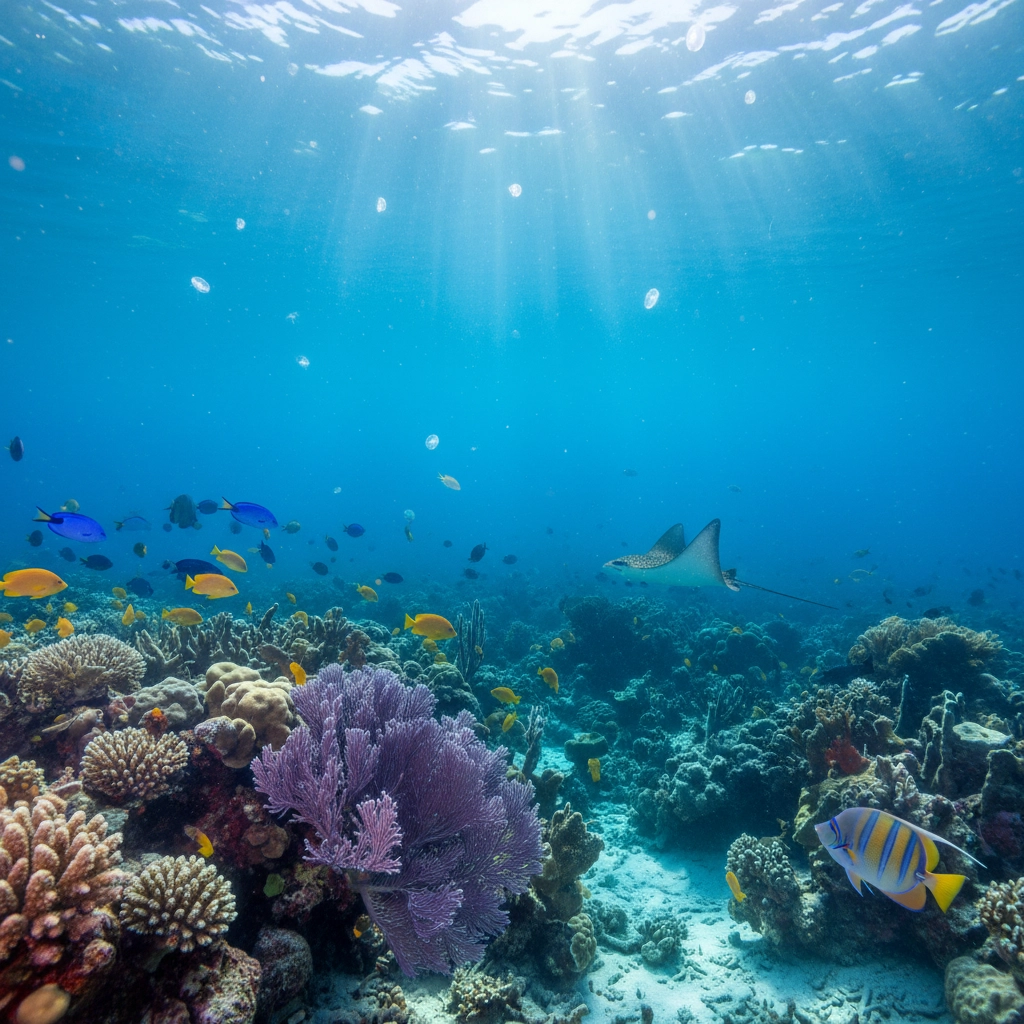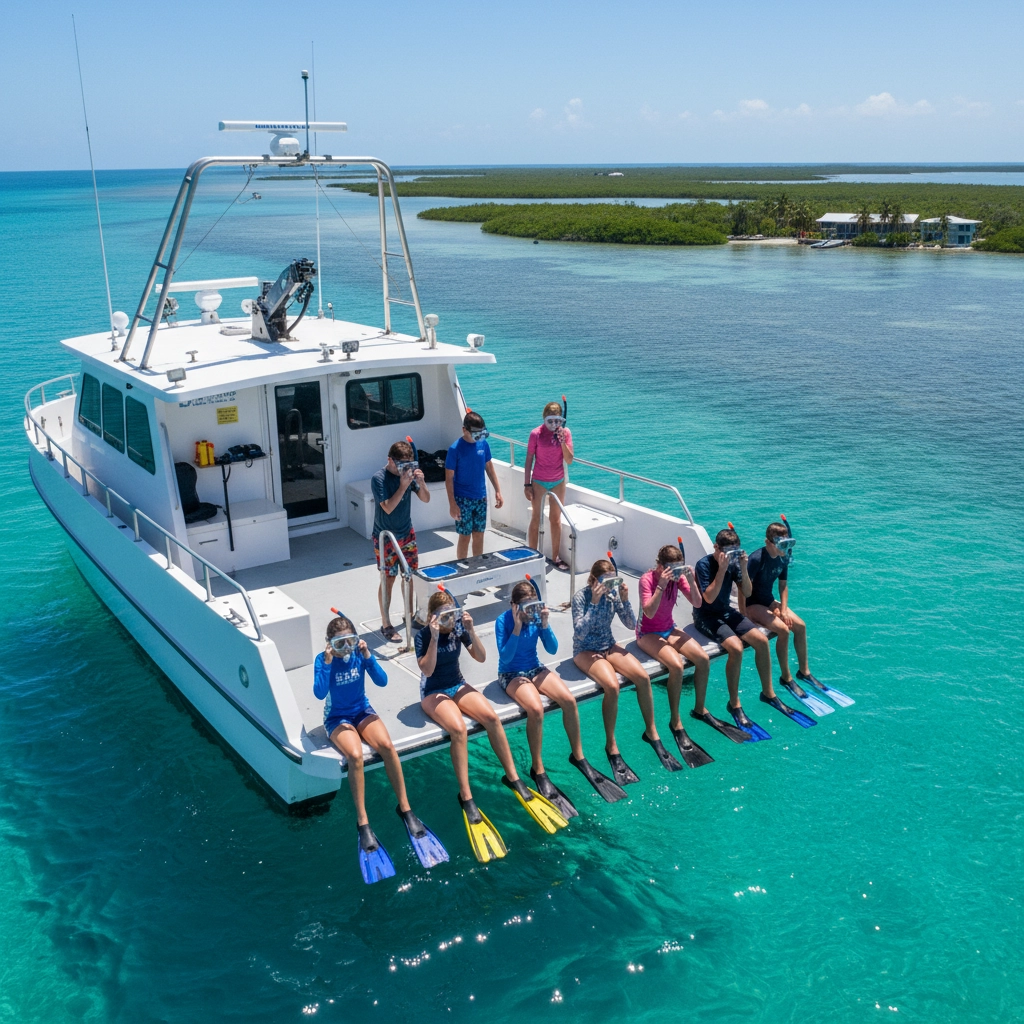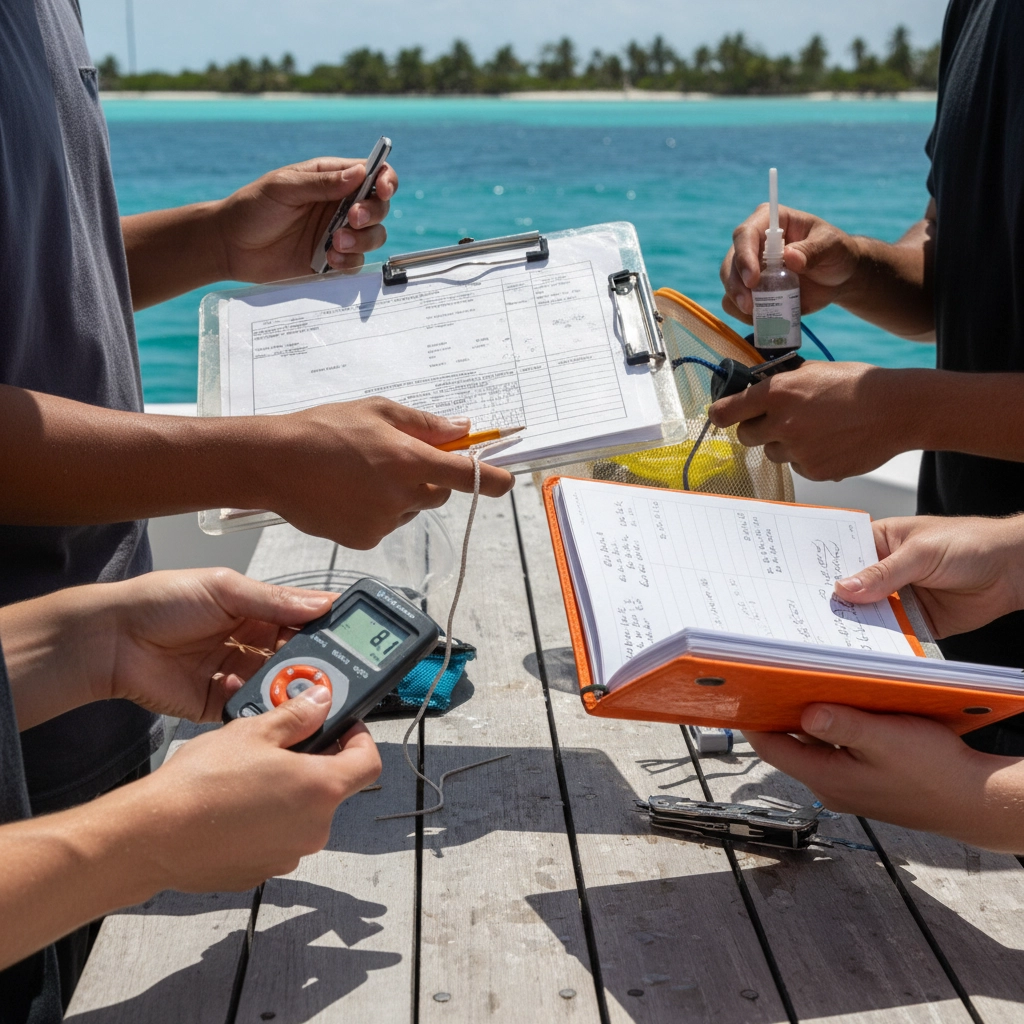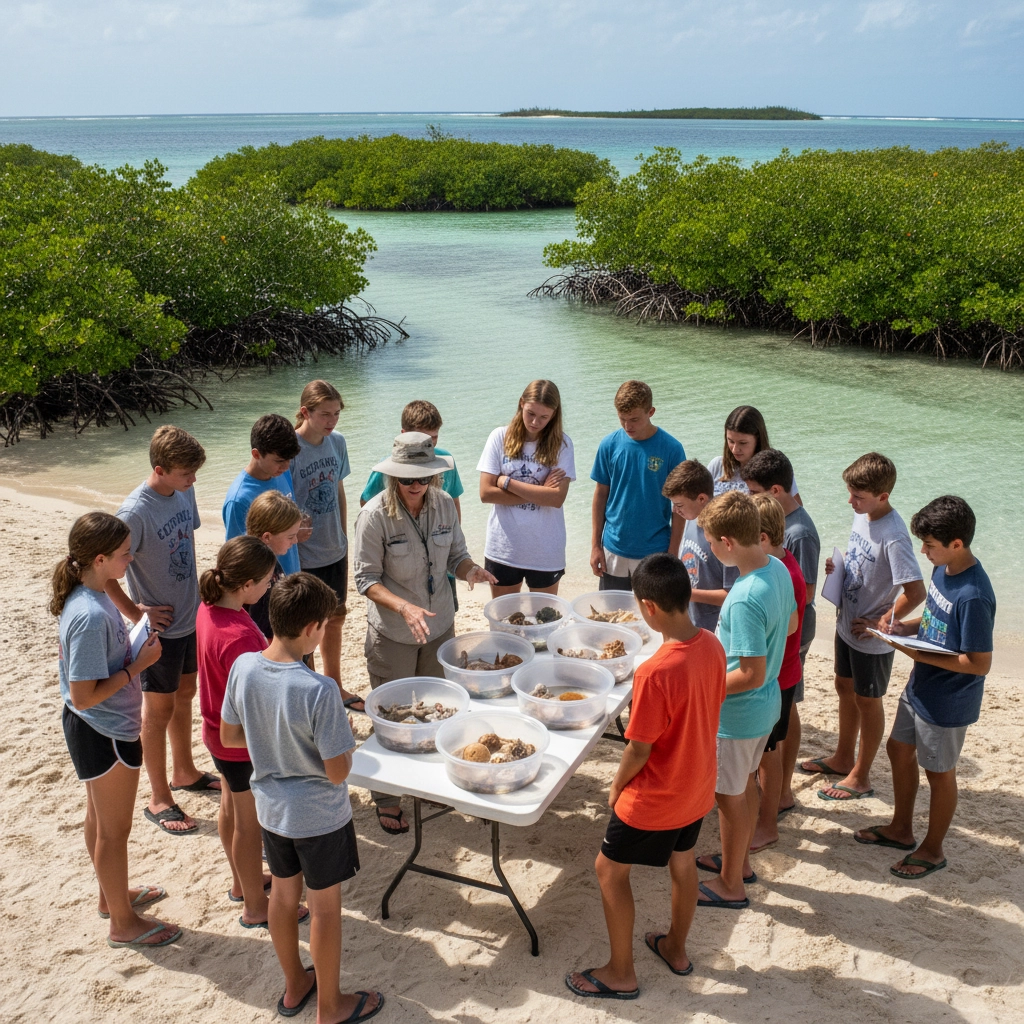School science trip Florida Keys
- Caleb Mullenix
- Oct 30, 2025
- 5 min read
Planning a school science trip Florida Keys expedition requires meticulous preparation and strategic coordination to maximize educational outcomes while ensuring student safety. The Florida Keys present unparalleled opportunities for hands-on marine science education, coral reef exploration, and coastal ecosystem studies that align directly with state science standards.
Essential Planning Framework for Your Florida Keys Science Expedition
Begin by establishing clear educational objectives that connect with your curriculum standards. The Florida Keys offer diverse marine ecosystems that support biology, environmental science, chemistry, and earth science learning goals. Develop specific learning outcomes before selecting program providers to ensure alignment with your academic requirements.
Create a comprehensive timeline starting 6-8 months before your planned departure date. Early planning allows for proper permit acquisition, transportation coordination, and parent communication. Research multiple program options to compare costs, educational content, and safety protocols before making final selections.

Budgeting Considerations and Program Costs
Establish a realistic budget framework that accounts for all expedition components. Day programs through FIU College of Arts, Sciences & Education range from $415 for virtual experiences to $600 for in-person field trips at locations like Bahia Honda State Park. Multi-day residential programs, such as those offered by Pigeon Key Marine Science Center, begin at $540 per person for comprehensive 3-day, 2-night experiences.
Consider these essential budget categories:
Program fees and educational activities
Transportation costs (buses, flights, or charter options)
Accommodation expenses for overnight programs
Meal provisions and dietary accommodations
Emergency fund allocation (10-15% of total budget)
Equipment rentals or purchases (snorkeling gear, field notebooks)
Marine Science Learning Opportunities in the Florida Keys
The Florida Keys National Marine Sanctuary provides access to the third-largest barrier coral reef system in the world, offering exceptional educational experiences. Programs emphasize hands-on learning through snorkeling expeditions, coral reef restoration projects, and marine wildlife observation.
Focus your curriculum integration on these key scientific concepts:
Coral reef ecology and biodiversity assessment
Marine conservation and restoration techniques
Mangrove ecosystem functions and importance
Water chemistry analysis and monitoring
Marine animal behavior and adaptation studies
Climate change impacts on coastal environments

Recommended Educational Providers and Programs
Pigeon Key Marine Science Center operates highly regarded residential programs on a private five-acre island. Their all-inclusive approach includes snorkeling adventures aboard a 35-foot catamaran, hands-on research activities, and expert-led educational sessions. Over 30,000 participants from more than 1,000 schools have benefited from their programs over the past two decades.
MarineLab offers flexible programming from single-day experiences to week-long intensive programs for grades 5 through college. Their curriculum emphasizes practical marine science skills and includes snorkeling components for direct ecosystem observation.
Mote Marine Laboratory & Aquarium provides field trip programs led by experienced educators, ensuring alignment with Florida State Science Standards while offering access to world-class marine research facilities.
Safety Protocols and Risk Management
Ensuring student safety during water-based activities requires comprehensive planning and clear protocol establishment. Verify that all program providers maintain current safety certifications and follow established marine activity guidelines.
Implement these essential safety measures:
Confirm all students complete swimming proficiency assessments
Require medical clearance forms and emergency contact information
Establish clear supervision ratios (typically 1:8 for water activities)
Review emergency action plans with all chaperones
Ensure access to certified lifeguards during water activities
Maintain communication protocols with school administration

Pre-Trip Preparation Requirements
Distribute comprehensive preparation packets to students and parents 4-6 weeks before departure. Include detailed packing lists, safety guidelines, emergency procedures, and educational expectations. Conduct mandatory pre-trip meetings to address concerns and clarify expectations.
Essential preparation elements include:
Medical form completion and review
Swimming ability verification and documentation
Sun protection and hydration education
Marine life safety awareness training
Equipment orientation (snorkeling gear, field tools)
Behavioral expectations and group guidelines
Maximizing Educational Impact Through Structured Learning
Design pre-trip classroom activities that prepare students for field experiences. Introduce marine ecosystem concepts, species identification, and scientific observation techniques before departure. This foundation enhances learning retention and student engagement during field activities.
Implement structured data collection protocols during field experiences. Provide students with field notebooks, observation sheets, and measurement tools to document their discoveries. Encourage scientific sketching, water quality measurements, and species identification activities.

Post-Trip Learning Reinforcement
Extend learning beyond the field experience through comprehensive follow-up activities. Require students to compile field notes, analyze collected data, and present findings to classmates. Connect field observations to broader environmental issues and conservation challenges.
Create opportunities for students to share their experiences with the broader school community through presentations, displays, or digital portfolios. This reinforcement solidifies learning while inspiring other students to participate in future expeditions.
Logistical Coordination and Travel Management
Coordinate transportation arrangements well in advance, considering group size, budget constraints, and travel distance. Charter buses often provide cost-effective solutions for regional groups, while air travel may be necessary for distant schools. Research group discounts and educational rates when available.
Establish clear communication protocols with parents throughout the planning process. Provide regular updates about itinerary details, preparation requirements, and educational objectives. Maintain transparency about costs, safety measures, and expected outcomes.

Accommodation and Meal Planning
For multi-day programs, research accommodation options that support educational objectives while maintaining appropriate supervision capabilities. Many marine science centers offer on-site lodging specifically designed for student groups, providing both convenience and enhanced learning opportunities.
Address dietary restrictions and food allergies through detailed meal planning. Communicate requirements clearly with program providers and accommodation facilities. Maintain backup meal options for students with special dietary needs.
Connecting Field Experiences to Classroom Learning
Align field trip activities with existing curriculum standards to maximize educational value. The Florida Keys provide exceptional opportunities for interdisciplinary learning, connecting marine biology with chemistry, physics, and environmental science concepts.
Develop assessment rubrics that evaluate student learning through field observations, data collection, and post-trip assignments. Focus on scientific process skills, critical thinking development, and environmental awareness growth rather than traditional testing methods.
At Appleseed Expeditions, we understand the transformative power of hands-on marine science education. Our expertly designed Florida Keys programs provide students with unforgettable learning experiences while maintaining the highest safety standards and educational excellence.
Long-term Impact and Program Sustainability
Evaluate program effectiveness through student feedback, academic performance assessment, and long-term engagement measurement. Document successful strategies and areas for improvement to enhance future expeditions. Consider establishing annual Florida Keys science trip traditions that build school culture and student anticipation.
Develop relationships with program providers that support ongoing educational partnerships. Many organizations offer repeat group discounts and customized programming for schools that demonstrate commitment to marine science education.
The investment in a school science trip Florida Keys experience provides students with irreplaceable hands-on learning opportunities that inspire environmental stewardship and scientific curiosity. Through careful planning, comprehensive safety protocols, and strategic educational design, these expeditions create lasting impact that extends far beyond the classroom walls.



Comments